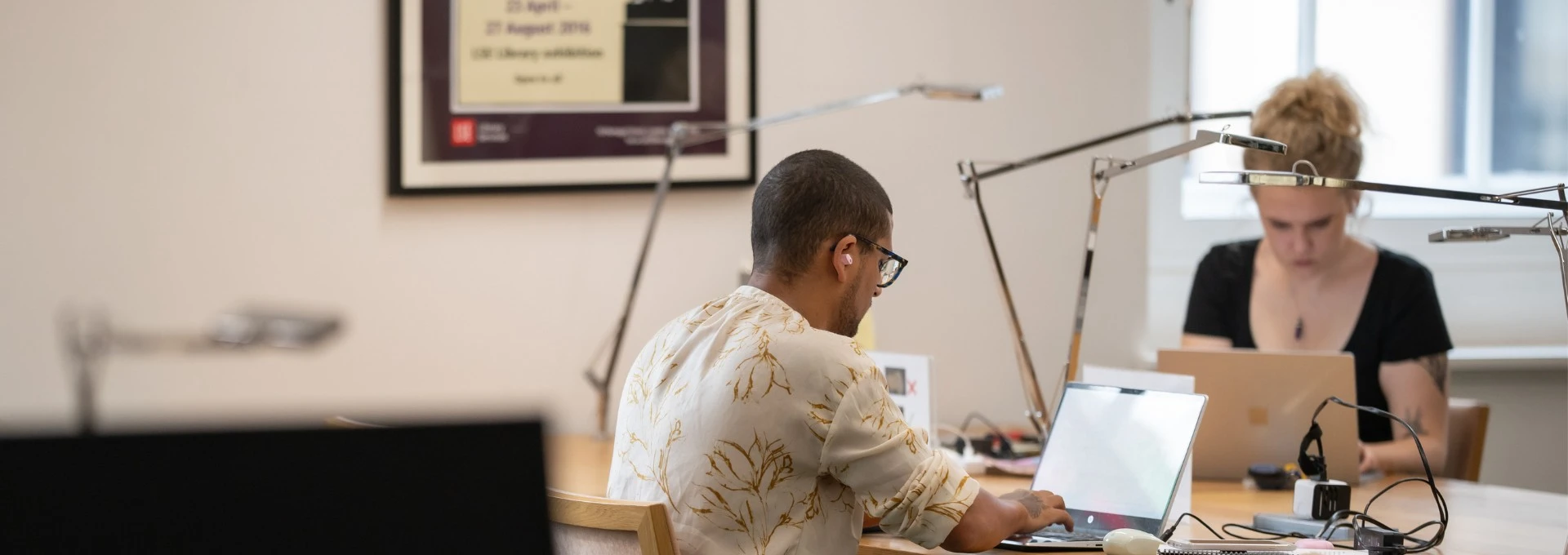Access archives and special collections

Open to everyone that wants to use our collections
The Women's Library Reading Room on the 4th floor is where our archives and special collections can be accessed.
Opening hours
- 10am to 4pm, Monday to Friday.
Make an appointment to visit our reading room
Get in touch in advance as it can take up to five working days to arrange access.
If you already have access to LSE Library
- Email us to arrange an appointment. Provide two working days' notice.
If you don't have current access to LSE Library
- You must follow the process on the visitor access to LSE Library and Archive page.
Beginning your research
Search our catalogues to identify material that is relevant to your research.
- Use Library Search to find books, articles and pamphlets.
- Search the archives catalogue for LSE and the Women's Library archives.
Requesting material for use in the reading room
You can request up to 3 items in advance of your visit and additional material when you are here. We retrieve material at the following times:
- 10.30am, 12pm and 2pm
Please allow up to an hour for material to be retrieved.
Copying
Take your own photographs of items. Flash photography and scanners are not permitted.
Make sure you follow copyright guidance. Responsibility for infringement of copyright is borne by the person making the copy, and the person (if different) for whom the copy is being made.
Guidance on copying and copyright in archives
Digital scanning service
Digital scans of archives and special collections items can be ordered for personal use. The service is free and aimed at researchers wishing to consult small amounts of material remotely.
Each request will be considered on a case-by-case basis. We aim to produce scans, subject to condition approval and appropriate copyright restrictions, within 10 working days.
Further help
Contact us if you need assistance identifying material relevant to your research.